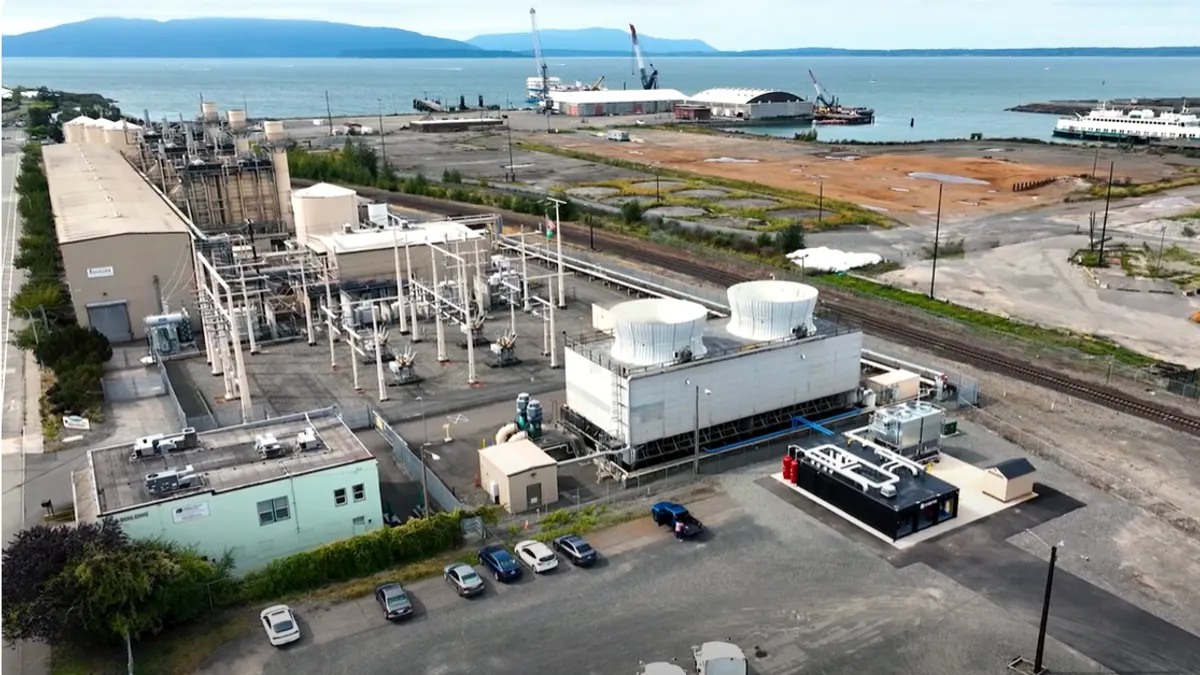As industry experts cast predictions of how various smart city sectors will evolve in the new year, one sector is offering a blurry outlook for 2019: real estate.
While commercial activity has been on the rise, particularly from expanding technology firms, shifts in e-commerce, affordable housing and residential demographics have also spurred many questions for how the urban real estate landscape will transform.
The Urban Land Institute and PricewaterhouseCoopers (PwC) has analyzed this real estate forecast and compiled insights in its 40th annual Emerging Trends in Real Estate report. While 2018 promised to be a year of tech adoption and activity among Generation Z buyers, 2019’s biggest trends will likely include cybersecurity risk management and prioritizing resilience.
"[T]hink of this year’s trends as circles in a Venn diagram," the report reads. "Trends will overlap, indicating that they interact, and over time those interactions (sometimes involving more than just two circles) foster new conditions that can alter either the features of the trend, its relative strength, and even its duration. We aren't in coloring-book world anymore."
Hot markets to watch
Each year, the Emerging Trends survey — which reflects the views of more than 2,300 individuals, including property owners, real estate investors, homebuilders and developers — highlights areas that rank high for investor interest. The report authors wrote, "[g]rowth appears to be in vogue for 2019," noting that survey respondents favored markets with growth potential over traditional "gateway" markets.
Dallas/Fort Worth took the crown as the top market for overall real estate prospects, up from the No. 5 spot in 2018. The top 20 list includes:
- Dallas/Fort Worth
- New York/Brooklyn
- Raleigh/Durham, NC
- Orlando, FL
- Nashville, TN
- Austin, TX
- Boston
- Denver
- Charlotte, NC
- Tampa/St. Petersburg, FL
- Atlanta
- Miami
- Salt Lake City
- Los Angeles
- Orange County, CA
- Seattle
- Fort Lauderdale, FL
- Washington, DC
- Indianapolis
- San Antonio
Seattle — which ranked No. 1 in the 2018 report — came in at No. 16 for 2019, which the authors suggested may be to the blame of the media for its coverage of the city’s real estate market. The authors also noted the list is so vastly different from last year’s list due to the impacts of 2018 tax laws. Overall, however, it is noted there is not a market in the survey that is ranked poorly based on respondent answers.
“The bottom line is that opportunities are available in all markets,” the report reads.
Experiential retail
The surge of the e-commerce industry has turned retail on its head in recent years, transforming brick-and-mortar stores and shopping plazas into vacant canvases for new development possibilities.
The rise of experiential retail will likely shake-up real estate opportunities in 2019, as developers look to “creative solutions” to take advantage of the evolving retail industry — such as combining retail and non-retail offerings into mixed-use properties.
"Over time, cities and suburbs may have the new opportunity to support — through zoning or master-plan amendments — needed development on sites previously dedicated only to retail," the report reads. "In any given community, new uses may include housing, schools, or any activity for which land availability had been limited. These new uses will, in turn, create new demand for retail goods and services."
Retail properties, specifically in cities, will also likely see more technology implementation in 2019 to collect consumer data and optimize the shopping experience. The report notes that this trend will become lucrative for the real estate market, suggesting that monetizing data collection of a retail building "might someday generate more income than traditional leases."
Cybersecurity risk management
Cybersecurity scored 3.14 out of 5 on an "importance of issues" scale in the 2018 report. For 2019, cybersecurity is now described as an "industry disruptor" by the report authors, scoring 3.44 out of 5 on the importance scale.
"The increased flow of data and growing use of mobile devices to control facilities are raising awareness about the need for more sophisticated cybersecurity," the report reads.
The authors list cybersecurity risk management as an issue to watch in 2019, noting that the popularity of internet of things (IoT) technology infiltrating building components has made the overall real estate industry more vulnerable to attacks. An interviewee of the survey noted the need for real estate leaders to establish "industry norms and best practices" to defend against cyberattacks and evaluate the efficiencies and vulnerabilities of such technologies.
Building resilience
As is the trend for any smart city-related sector, building resilience into the framework of the real estate industry is crucial for long-term sustainability — especially as changes in climate have brought unprecedented destruction to a number of U.S. markets.
The report estimates natural disasters in 2017 — including Hurricanes Harvey, Maria and Irma — cost an estimated $306 billion in the U.S. These and impending natural disasters have put a heightened focus on resilience in real estate.
Two particular factors — an increase in risk and the potential for decreased property values — are driving much of the focus on resilience. Nearly 25% of the National Council of Real Estate Investment Fiduciaries (NCREIF)’s Property Index value is in cities among the 10% most exposed to sea-level rise, according to the report. Such flood risk has caused property values to decrease in some areas, particularly in flood-vulnerable regions on the East Coast; properties in such regions of New York, Connecticut, New Jersey, Florida, South Carolina, North Carolina, Virginia and Georgia had lost $14.1 billion in value between 2005 and 2017, according to the report.
The report authors suggest embracing resilient design (both of real estate properties and surrounding infrastructure) to enhance protection of at-risk markets. Such investments in resilience are said to not only benefit properties in the long run, but make them far more attractive to investors. “Investing in resilience may also become an effective part of a community engagement strategy and help limit local opposition to a project,” the report reads.



















